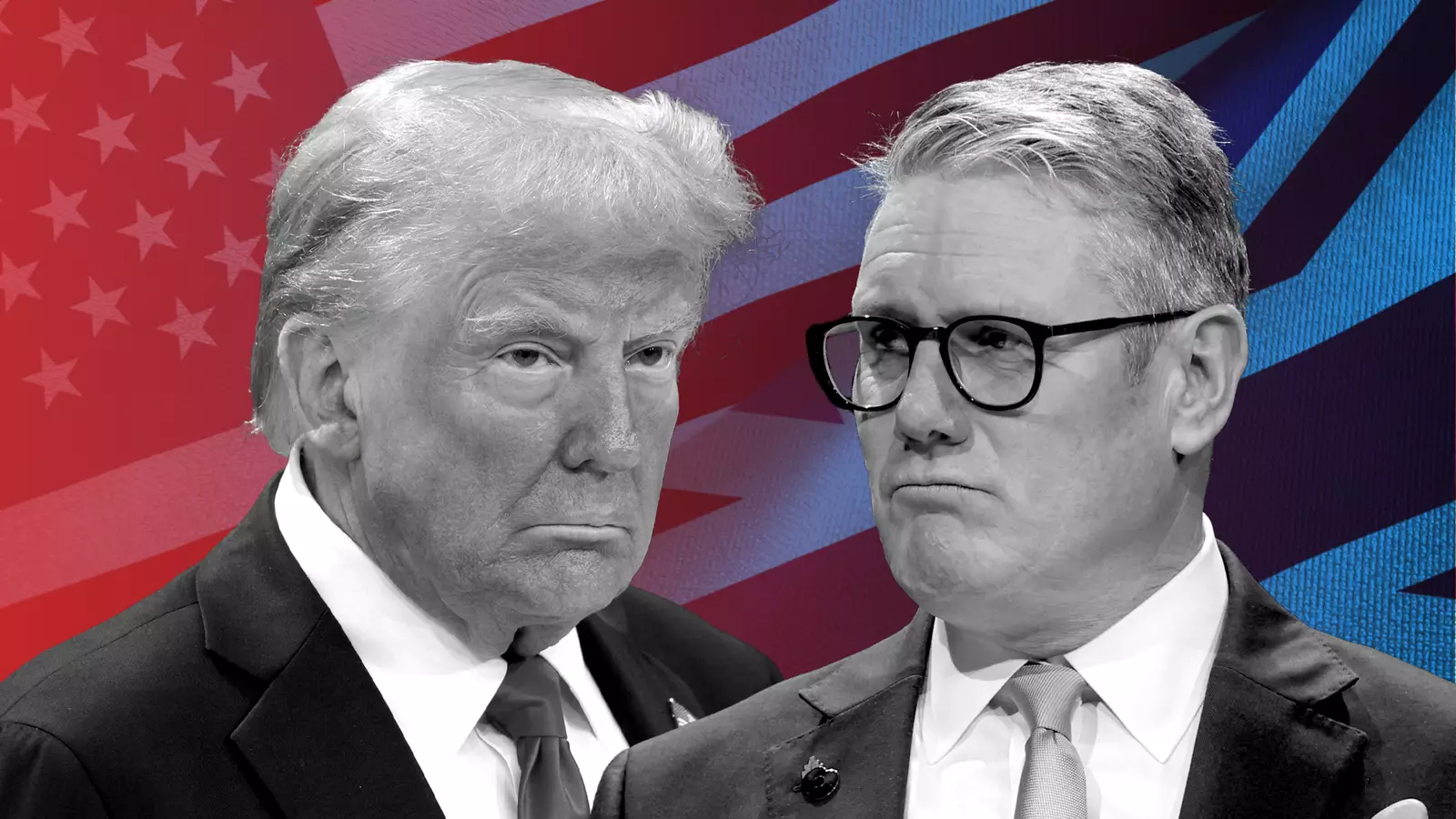This year’s Remembrance Day in Britain carries a weightier significance as it marks the 80th anniversary of the D-Day landings—a pivotal moment in the fight against fascism during World War II. The solemnity of this occasion is underscored by the planned tributes at the iconic Elizabeth Tower, where images of the brave souls who participated in the Normandy campaign will be displayed. This initiative, spearheaded by the Speaker of the House of Commons, Sir Lindsay Hoyle, along with the Imperial War Museum, serves as a reminder of the sacrifices made throughout history.
As political leaders gather to lay wreaths at the Cenotaph—a memorial honoring those who have fallen in military conflicts—the gathering scenario raises a stark irony: many of these leaders have previously supported significant cuts to the UK’s defense budget. This juxtaposition casts a shadow over the day’s commemorations, prompting questions about the moral integrity of honoring the past while undermining present-day military readiness.
D-Day remains a touchstone of British national pride, representing a moment when collective courage triumphed over tyranny. However, under current Prime Minister Rishi Sunak’s administration, there are growing concerns about the UK’s ability to respond to modern threats. Sunak’s decision to avoid early participation in the international commemorations on June 6, 1944, has been criticized as a missed opportunity to reaffirm Britain’s historical commitment to global security. The dependence on the United States, as a longstanding ally, looms larger than ever against a backdrop of escalating international tensions ranging from the situation in Ukraine to growing anxieties about China’s ambitions.
The North Atlantic Treaty Organization (NATO) is designed to protect its members under a mutual defense clause, yet contemporary political scenarios, particularly the rhetoric surrounding future U.S. leadership under Donald Trump, shine a light on growing concerns. Trump’s “America First” mantra suggests a diminished commitment to European defense, raising existential questions over whether the UK and its European allies are adequately prepared to operate independently.
Recent reports in the House of Commons, including one provocatively titled “Ready For War?”, illustrate the urgency felt among British politicians regarding national defense. The looming specters of Russia’s aggressions in Ukraine and the unpredictability of the North Korean regime, along with China’s expanding geopolitical influence, magnify the call for a restructured defense strategy. One proposal involves increasing the UK’s military capability without exacerbating the current budget limitations, a daunting challenge already characterized by a ‘black hole’ of unfunded spending commitments.
General Sir Roly Walker’s recent remarks highlight an ambitious goal: to double the effectiveness of British forces within three years. However, achieving such bold targets using existing resources poses a paradox of military funding that is particularly troubling given the dwindling manpower levels within the UK armed forces, reportedly at their lowest in two centuries.
Political debate surrounding defense expenditures is intensifying, especially with calls for aligning military spending closer to NATO’s target of 2% of national GDP, and even the more ambitious 2.5% suggested by some opposition leaders. The reluctance to embrace such spending forecasts underscores a wider political dilemma: balancing immediate public service needs against the imperative of national security. The historical reluctance of UK government entities, from David Cameron to current leadership, to fulfill these financial obligations adds another layer to this complex discourse.
Moreover, the geopolitical landscape is shifting in ways that could impact Britain’s position on the global stage. The role of the U.S. military in Europe is transitioning, with suggestions that American troop presence may shrink post-Trump, creating a security vacuum that must be addressed. As caution grows around the potential consequences of a diminished U.S. military commitment, the responsibility for Europe’s defense increasingly shifts to its own nations.
The speculative discussions surrounding the future of NATO and the potential negotiations over Ukraine’s sovereignty add tension to an already precarious situation. The notion that compromises may be made at the expense of European security—echoing historic deals like Hitler’s appeasement—invokes a collective anxiety regarding the lessons of history. With rumors of a “deal” negotiated under Trump’s leadership, where territorial claims might be traded for a semblance of peace, skepticism among European nations grows, illustrating the perilous state of international relations.
As Remembrance Day approaches, the celebrations should inspire a serious reconsideration of Britain’s national defense and foreign policy. The gathering of leaders at the Cenotaph will carry more weight if accompanied by a commitment to learning from the past and preparing for the realities of modern warfare. In this context, the memories of those who sacrificed for freedom call not only for remembrance but also for a rigorous assessment and commitment to future generations.



Leave a Reply